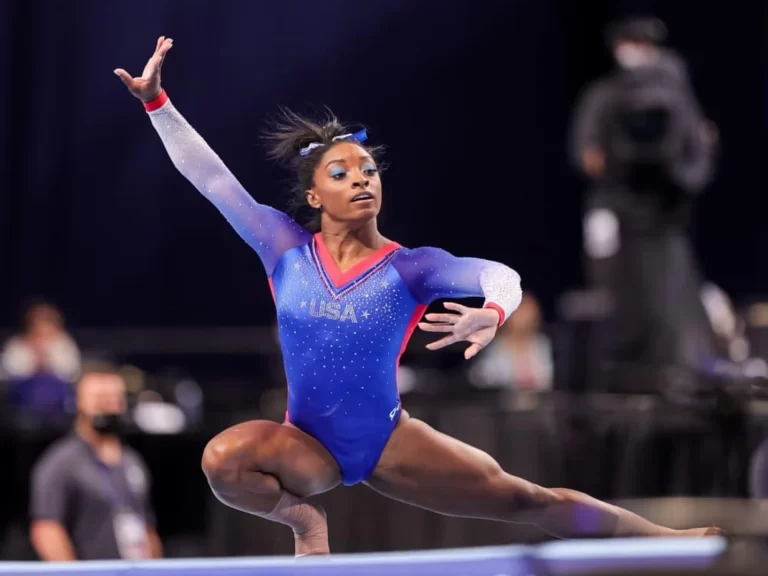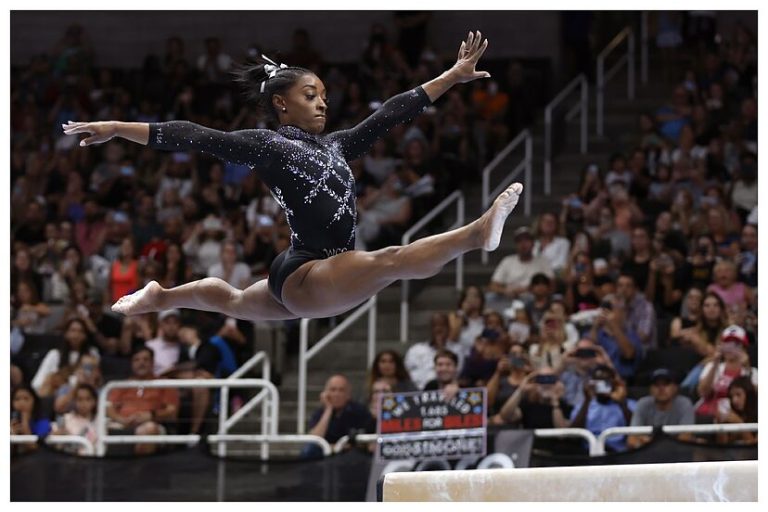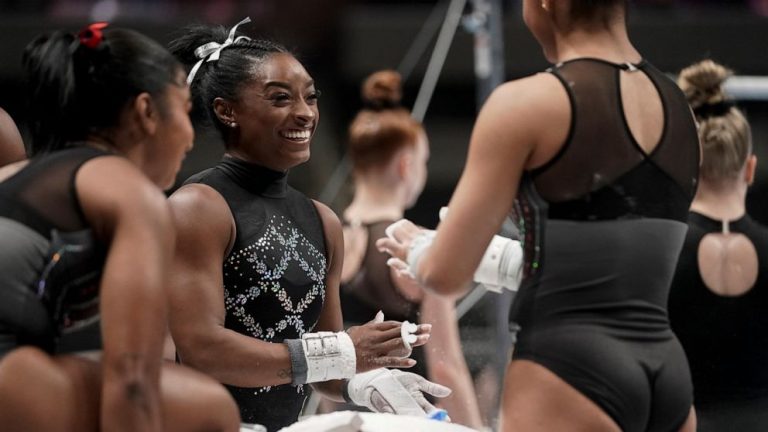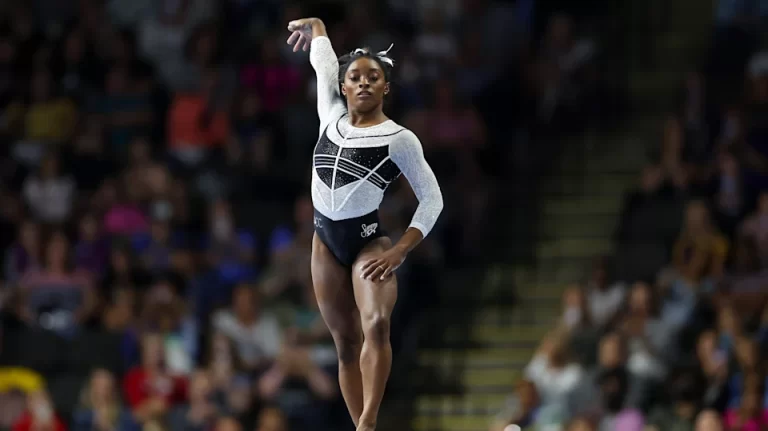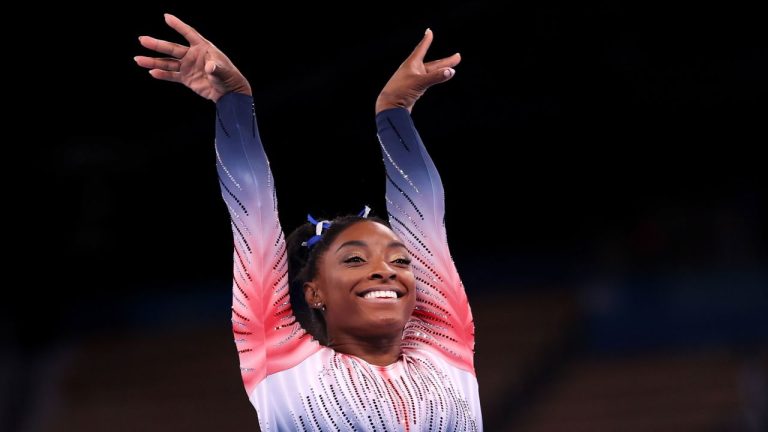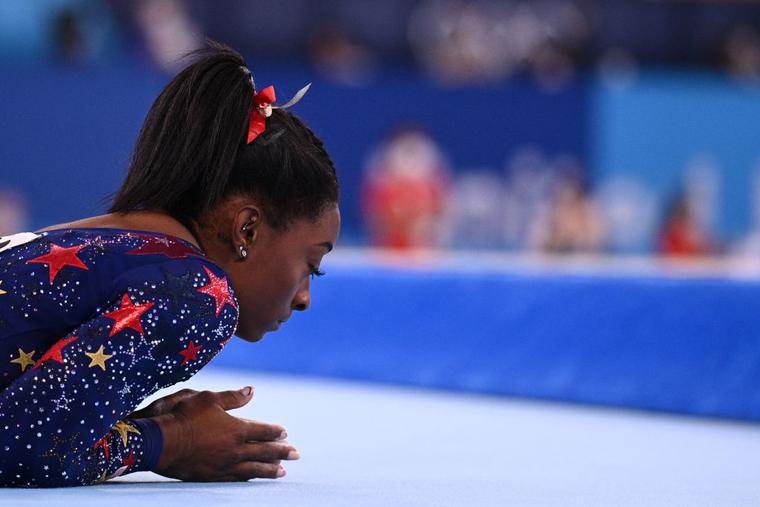SAN JOSE, Calif. — Simone Biles shouldn’t be punished for giving international gymnastics officials exactly what they wanted.
The four-time Olympic champion continues to push the boundaries of the sport and it appears the International Gymnastics Federation is going to continue to push back, refusing to give the skills she does their rightful value.
“There’s not much we can do,” Laurent Landi, one of Biles’ coaches, said Wednesday. “They want to protect the athletes as much as they can, but when the code of points is open, like the way it is now, you need to let the athletes shine through their strength. If it’s artistry, then let them do as many leaps and turns as they can do. If it’s acrobatics, whatever it is.
“Reward them,” he added, “don’t just penalize them.”
Biles is planning on doing the Yurchenko double pike vault at this week’s U.S. gymnastics championships. No other woman has done that vault in competition, and it’s so difficult few men even try it. The strength required to pull the body around in a piked position not once but twice is immense, and there’s no bailout. Do it wrong, and a gymnast could easily land on his or her head.

Because Biles hasn’t done the Yurchenko double pike at an international competition, it doesn’t have an official value yet. She did it at the U.S. Classic in 2021 and again earlier this month, in her first competition since the Tokyo Olympics.
This is where the problem comes in.
Every gymnastics skill is assigned a numerical value. The more difficult the skill, the higher the value. The hardest vaults being done now are worth 5.4 or 5.6. Given the strength and precision required for the Yurchenko double pike, it really should be valued at a 6.6.
Or, at the very least, a 6.4 — which is what U.S. judges gave it at Classic on Aug. 5.
“She did it at Classic and … I started laughing,” said Alicia Sacramone Quinn, who was the world champion on vault in 2010 and is now the strategic lead for USA Gymnastics’ women’s program.
“It’s just so impressive,” Sacramone Quinn added. “You just sit there and you’re like, ‘Wow. WOW. That’s literally all you can say. It’s ridiculous.'”
But the federation’s women’s technical committee, which assigns skills their values, is likely to give the Yurchenko double pike, at most, a 6.2. Which is absurd. Just as it was when it undervalued Biles’ double-twisting, double-somersault dismount off the balance beam in 2019.
The FIG will no doubt say, as it has before, that this is about safety. That it doesn’t want to encourage other gymnasts to risk life and limb by trying skills they’re not capable of doing.
But that isn’t fair to Biles. It isn’t in the spirit of sport, either.
When gymnastics ditched the 10.0 and went to an open-ended scoring system after the 2004 Olympics, part of the reasoning was to encourage gymnasts to push themselves. When there’s no limit to what a gymnast can score, there’s no limit in their imagination, either.
Biles and her coaches have embraced that more than anyone, and she’s mastered skills on floor exercise, beam and vault that would have been unfathomable just a few years ago.
When gymnastics ditched the 10.0 and went to an open-ended scoring system after the 2004 Olympics, part of the reasoning was to encourage gymnasts to push themselves. When there’s no limit to what a gymnast can score, there’s no limit in their imagination, either.
Biles and her coaches have embraced that more than anyone, and she’s mastered skills on floor exercise, beam and vault that would have been unfathomable just a few years ago.

“You wanted to open it up and it feels like, sometimes, you want to shut it back down.”
The most irritating thing about all of this is there’s an easy fix, a way to both reward gymnasts like Biles and protect those who aren’t.
In addition to the difficulty, or D, score, which reflects the sum value of the skills in a routine, there’s an execution, or E, score. Total them together and that’s the score for a routine.
If a gymnast is going to try a skill he or she has no business doing, hammer them on the execution score. Instead of the 8s and 9s typically seen for execution, give them a 3 or a 2. All it’ll take is one score below 10 when the rest of the field is getting 14s or 15s to keep everyone in check.
Instead, gymnastics officials seem to think short-changing Biles is the better answer.
“This is where they are right now,” Landi said. “We cannot do anything but play the game and do as good as we can with what we have.”
Biles should be judged on what she can do. Not on what others cannot.

